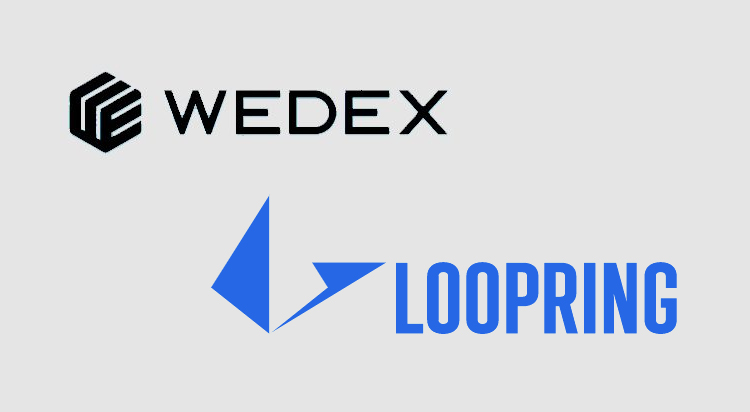Loopring, an open protocol for scalable, non-custodial exchanges, has announced that WeDEX, the DEX built on top of the Loopring 3.0 protocol is now live.
This contract shows one of the first live DEX’s leveraging zkRollup for scalability on the Ethereum mainnet as well as the first one to enforce on-chain data availability.
On the first day of their beta launch, WeDEX successfully settled more than 20K trades, with Ethereum-level security guarantees — which cost 1.4 ETH in gas total, at a gas price of 5.2 gwei.
“Through this contract, you can find transactions that are the proven ‘batches’ submitted to Ethereum. Within them, they contain the actual DEX activities: deposits, withdrawals, and trade settlements. Our upcoming open source DEX Browser is needed to discern the actual granular activity.”
– The Loopring Team
Product Testing
In the near future, Loopring plans to help WeDEX complete a full lifecycle test, including testing shutdown mode (operators proactively shut down the DEX) and withdrawal mode (operators violate some protocol rules). In all cases, the protocol ensures DEX users are able to withdraw their rightful assets.
WeDEX is currently doing the first round of beta testing with 100 users, which will last for one week. Beta testing is first focused on Chinese language users, but will open to English language testing soon.
Hebao Wallet
The Loopring team announced it has also finished the implementation for Loopring’s smart contract wallet. Designated “Hebao” (荷包) which means purse in ancient Chinese, Hebao will be a standalone smart contract wallet. It will feature very tight Loopring v3 integration for user onboarding. Next week will commerce unit testing the contract. The goal is to complete unit testing by the end of February 2020.
Those interested can read more about Hebao in a recently published Loopring 2020 roadmap.






















